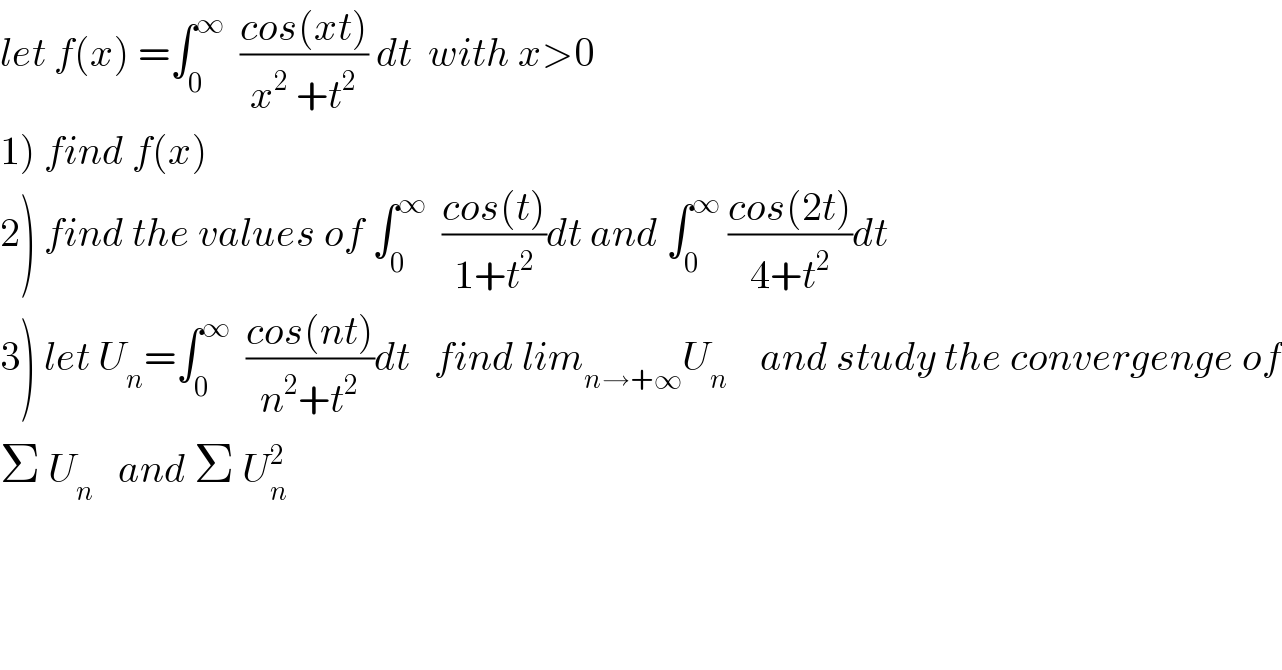
Question and Answers Forum
Question Number 56311 by maxmathsup by imad last updated on 13/Mar/19

Commented bymaxmathsup by imad last updated on 15/Mar/19

| ||
Question and Answers Forum | ||
Question Number 56311 by maxmathsup by imad last updated on 13/Mar/19 | ||
 | ||
Commented bymaxmathsup by imad last updated on 15/Mar/19 | ||
 | ||